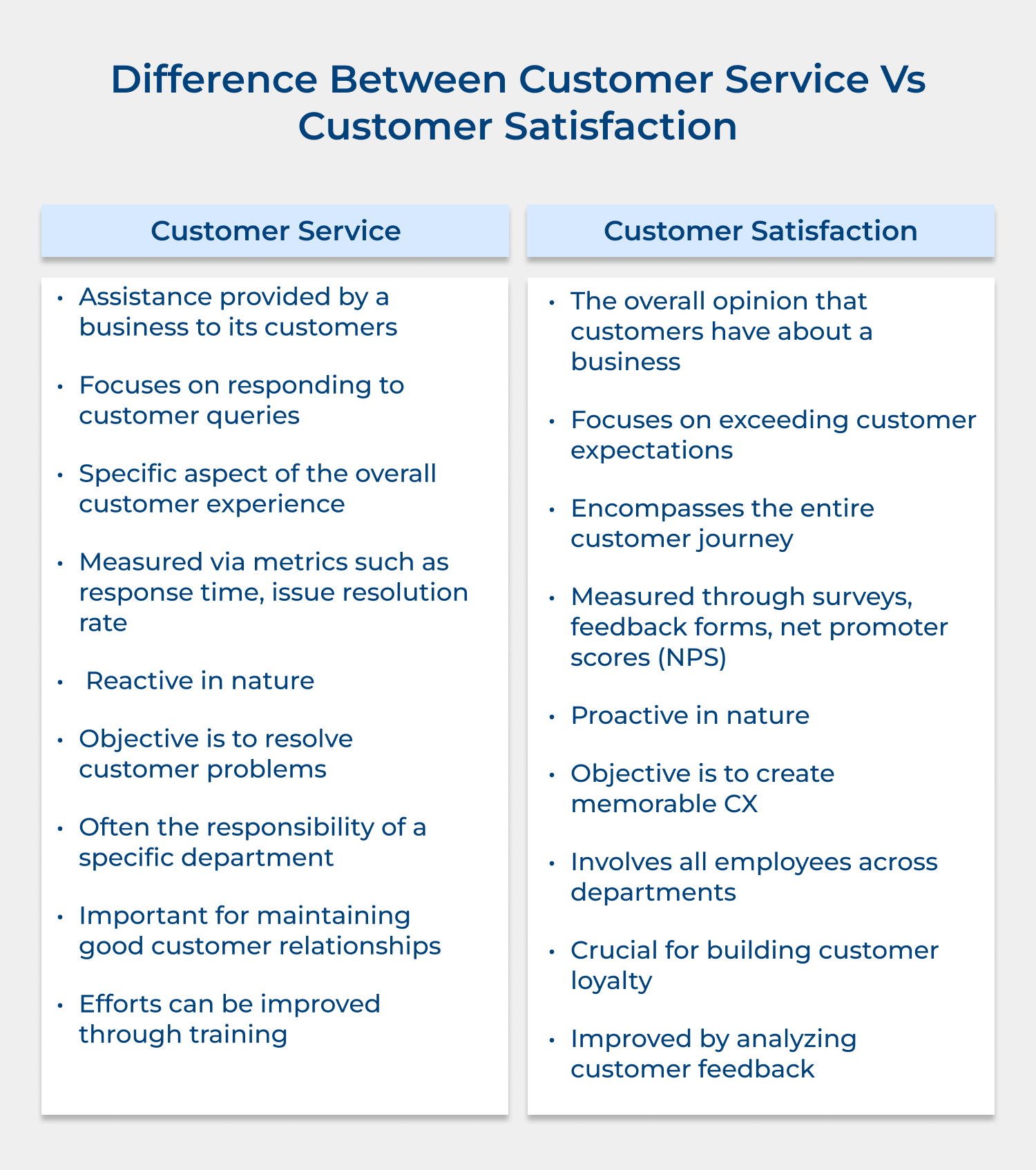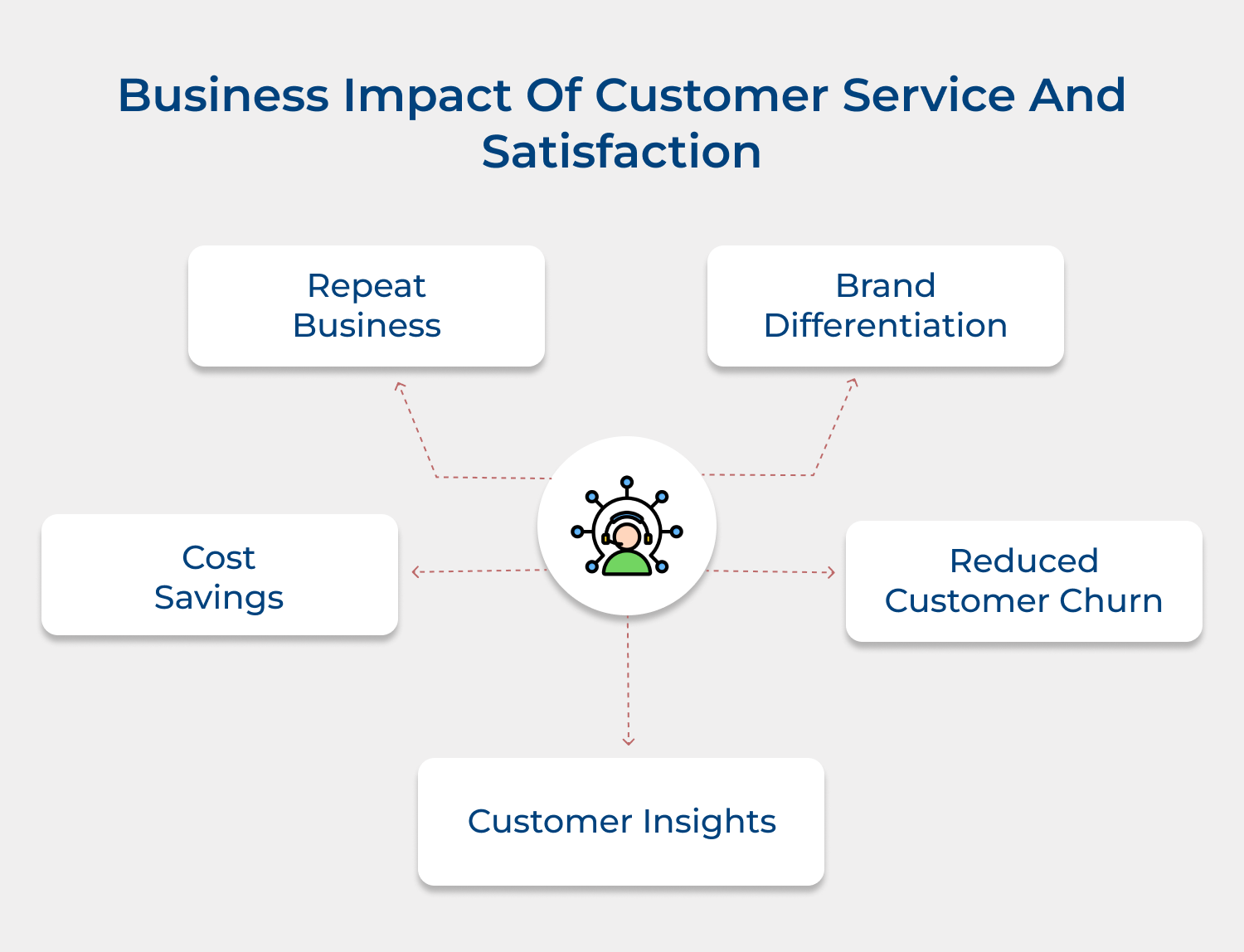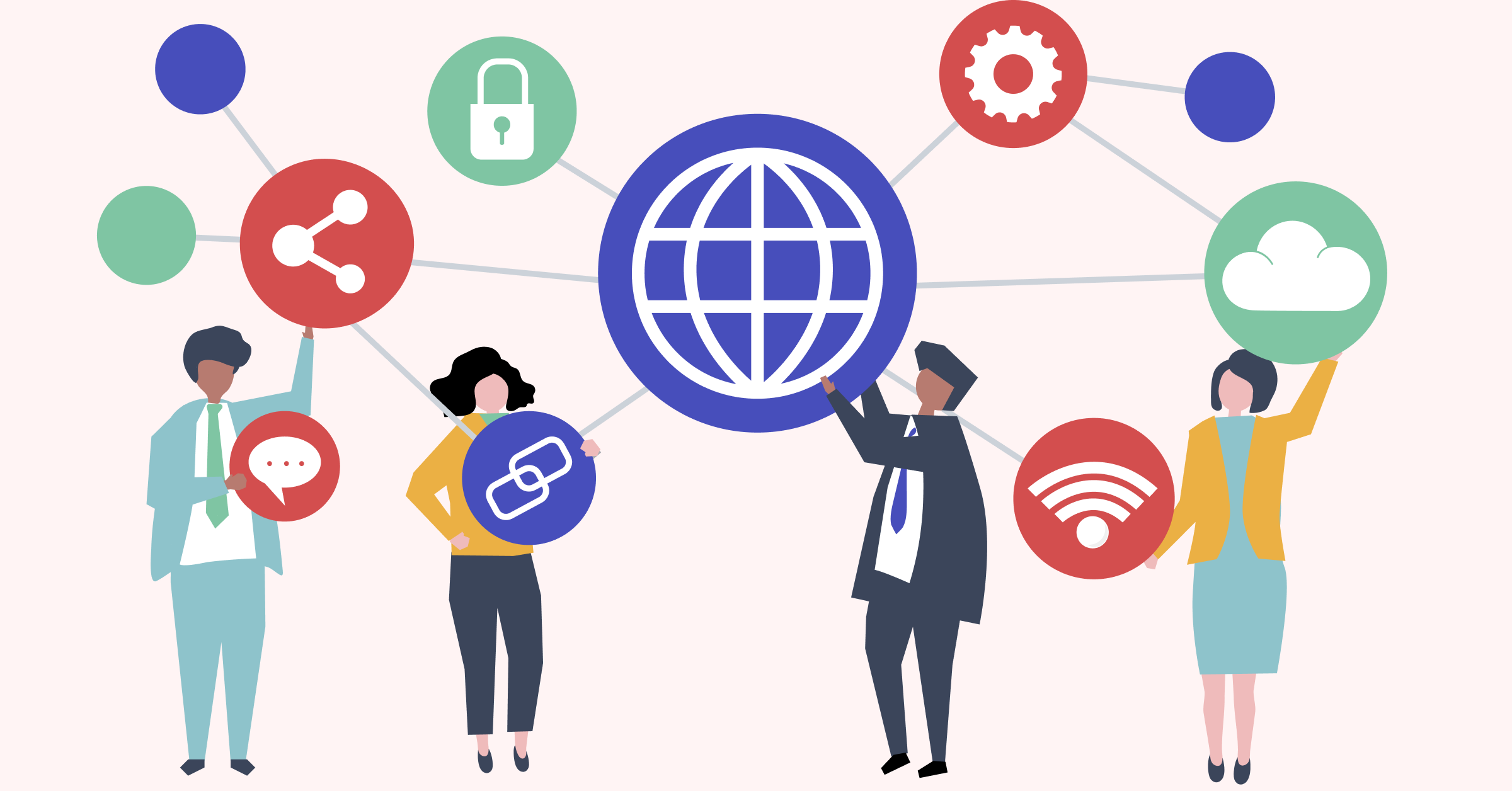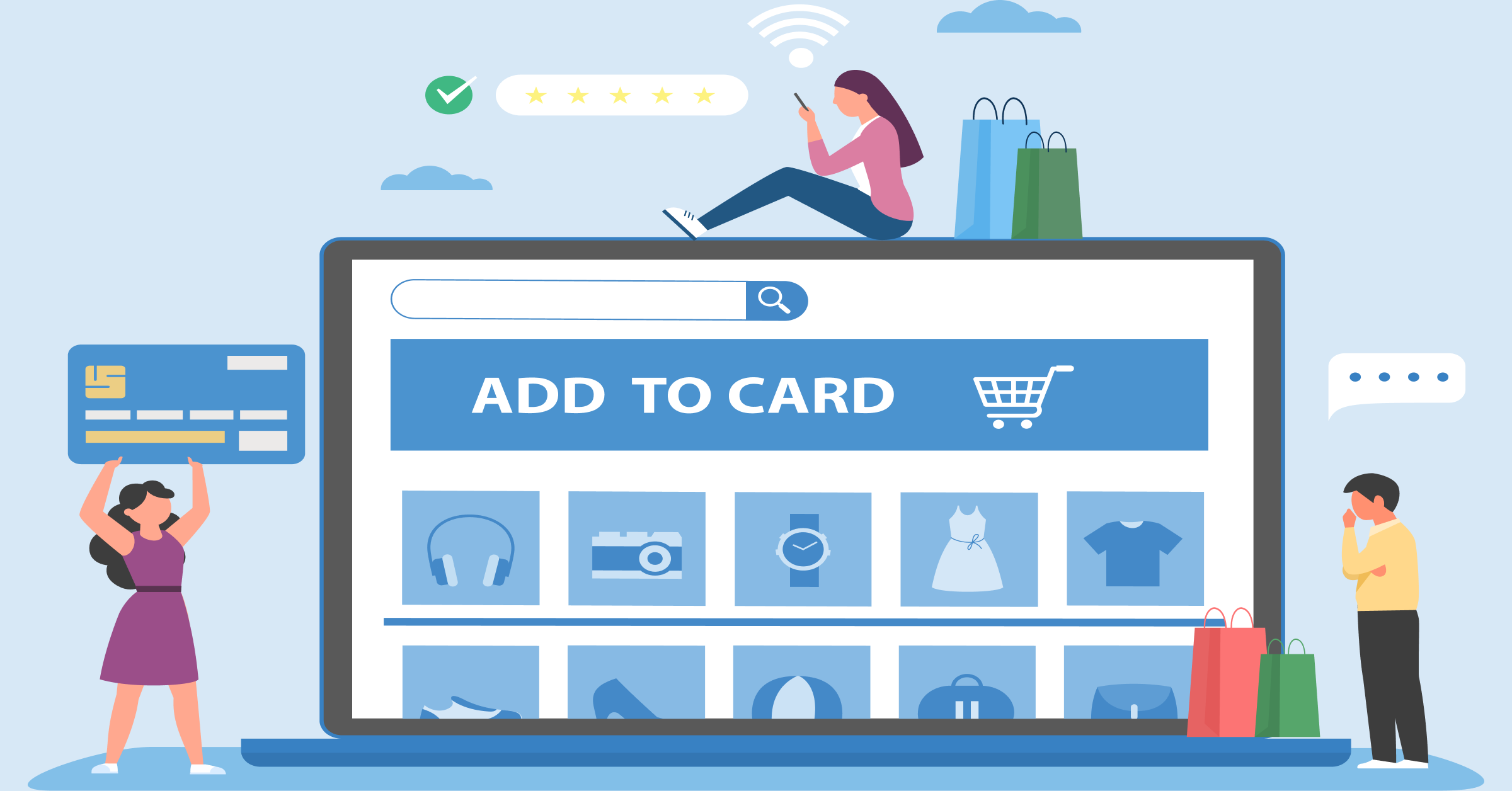Understanding the distinction between customer service and customer satisfaction is crucial for businesses to provide excellent overall customer experience.
1. Definition
Customer service refers to the support assistance provided by a business to its customers before, during and after a purchase. It focuses on addressing customer needs, resolving issues, and maintaining a positive relationship with customers.
Customer satisfaction is the overall evaluation or opinion that customers have about a business based on their experiences and interactions. It is a measurement of how well a product or service meets or exceeds customer expectations.
2. Focus
The primary focus of customer service is on the actions and processes involved in assisting customers. It involves aspects such as answering inquiries, solving problems, and providing assistance.
Customer satisfaction focuses on meeting or exceeding customer expectations and ensuring that customers are happy. It encompasses the product or service quality, delivery, reliability, and overall experience.
3. Scope
Customer service is one specific aspect of the overall customer experience. It deals with direct interactions between customers and company reps. It encircles all aspects of customer interactions, such as support hotlines, email responses, and face-to-face interactions.
The entire customer journey is consolidated in customer satisfaction. It includes interactions with customer service, product quality, pricing, and overall brand experience.
4. Timeframe
Usually customer service is a more immediate and transactional process. It is a real-time interaction between the customer and the company. It occurs at various touch points throughout the customer journey.
Customer satisfaction is a long-term evaluation that evolves. It is measured after the customer has experienced the entire process or completed a transaction, through surveys, feedback, or reviews.
5. Measurement
The quality of customer service is measured by the effectiveness of the company’s support. It can be evaluated through metrics such as response times, issue resolution rates, and customer feedback.
The level of customer satisfaction is typically measured through surveys, feedback forms, net promoter scores (NPS), or reviews. It captures customers’ overall feelings about their experience.
6. Proactiveness
Customer service is often a reactive process, as it involves addressing customer issues or inquiries as they arise. It is focused on resolving problems and providing assistance when needed.
Customer satisfaction, on the other hand, can be proactive. It involves anticipating customer needs, exceeding expectations and consistently delivering a high level of service.
7. Objectives
The main objective of customer service is to resolve customer problems, answer questions and effectively. It provides assistance to customers, ensuring their needs are met and problems are resolved.
The key objective of customer satisfaction is to create positive experiences for customers, leading to repeat business and positive word-of-mouth. It aims to meet or exceed customer expectations, resulting in a positive perception of the company and its offerings.
8. Employee Involvement
Customer service relies on the direct involvement of frontline employees who interact with customers. They are responsible for delivering quality service and resolving customer issues.
Customer satisfaction involves the efforts of the entire organization. Every employee, from sales to operations, contributes to the overall customer experience and satisfaction.
9. Importance
Customer relationships are strengthened by providing good customer service. It also reduces customer churn and resolves issues promptly. It is a key factor in customer retention and repeat business.
Customer satisfaction is equally important, as it determines how customers perceive the company and its offerings. Satisfied customers are more likely to become returning customers and may also provide positive referrals.
10. Continual Improvement
Customer service efforts can be improved through training, process enhancements, and effective communication. It often focuses on addressing customer concerns immediately. It may involve process improvements based on recurring issues.
Customer satisfaction can be continually improved by collecting customer feedback, making necessary adjustments to products or services, and consistently striving for excellence in all areas of the business.
Business Impact of Customer Service and Satisfaction
Customer service vs customer satisfaction – though they are not the same but have a significant impact on the success and growth of a business. Investing in providing excellent customer service helps businesses to build long-term relationships with customers and gain a competitive advantage in the market.






